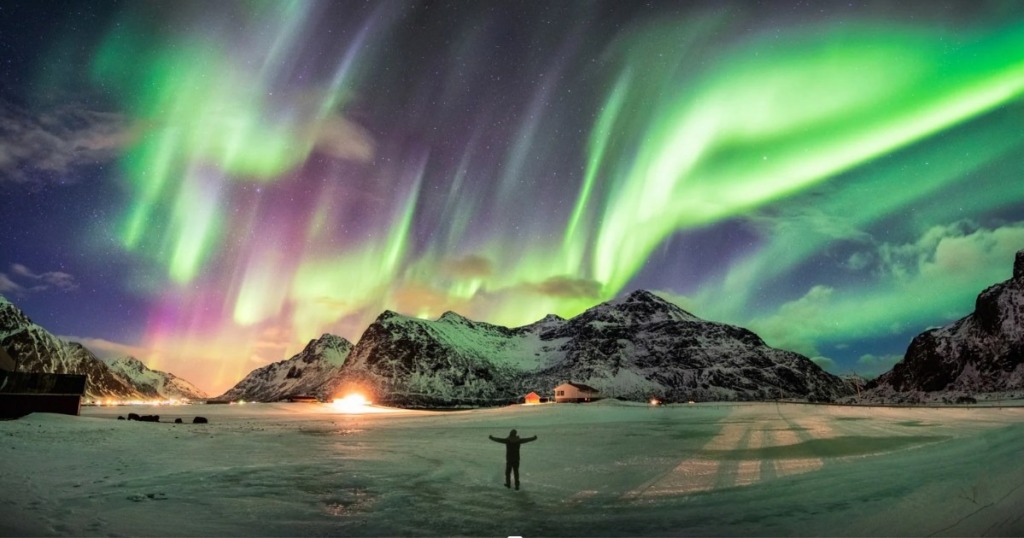
Canada’s North offers unique opportunities for ambitious professionals seeking to advance their careers in a distinctive environment. Yellowknife, the capital and largest community of the Northwest Territories, presents a compelling destination for workers across various industries. With a population just over 20,000, this vibrant city sits on the northern shore of Great Slave Lake, approximately 400 kilometres south of the Arctic Circle.
The decision to relocate for work represents a significant life change, and moving to Canada’s North amplifies both the excitement and challenges of such a transition. Understanding what awaits you in Yellowknife—from employment prospects to daily living realities—will help ensure your professional relocation becomes a successful adventure rather than an overwhelming adjustment.
The Employment Landscape in Yellowknife
Government and Public Sector Opportunities
The Government of Northwest Territories (GNWT) serves as one of the largest employers in Yellowknife, offering positions across various departments with competitive salaries ranging from $68,000 to $152,000 annually. The public sector provides stability and comprehensive benefits packages that make it particularly attractive for professionals seeking long-term career development.
Key government employment areas include:
- Healthcare and social services through the Northwest Territories Health and Social Services Authority
- Education roles with multiple school boards serving the region
- Environmental and climate change positions
- Business development and investment opportunities
- Administrative and support services across territorial departments
Yellowknife serves as the hub for much of the territory, making it the gateway to the North as the first stop for airlines arriving from larger Canadian cities like Edmonton, Calgary, Ottawa, and Vancouver. This strategic positioning creates additional opportunities in transportation, logistics, and federal government positions.
Private Sector and Industry Growth
The private sector in Yellowknife extends well beyond traditional mining operations, though the discovery of diamonds north of the city in 1991 continues to drive significant economic activity. Current job markets show strong demand across multiple industries, with over 400 active job postings ranging from $18 to $52 per hour in sectors including construction, transportation, hospitality, and professional services.
Emerging employment sectors include:
- Tourism and hospitality – Capitalizing on aurora tourism and northern experiences
- Transportation and logistics – Supporting remote communities and resource operations
- Professional services – Accounting, legal, consulting, and business support
- Technology and communications – Growing sector supporting territorial connectivity
- Construction and trades – Ongoing infrastructure development and housing expansion
Specialized Professional Opportunities
Healthcare professionals find particularly strong demand, with opportunities for dentists, medical practitioners, and support staff throughout the territorial health system. The territorial regulatory environment often requires licensing or registration, but many southern Canadian credentials transfer with appropriate application processes. Mental health professionals, physiotherapists, and specialized medical technicians also command premium salaries due to limited availability.
Engineering, environmental consulting, and project management roles frequently become available due to ongoing infrastructure projects and resource development initiatives. The unique northern environment creates specialized expertise demands that can accelerate career development for willing professionals. Environmental consultants particularly benefit from the growing focus on climate change adaptation and sustainable development in northern communities.
Remote work opportunities have expanded significantly, allowing professionals in technology, consulting, and creative industries to combine northern living with global career opportunities. High-speed internet infrastructure improvements make Yellowknife increasingly attractive for digital nomads and remote workers seeking unique lifestyle environments while maintaining competitive careers.
Housing Market and Accommodation Realities
Rental Market Dynamics

The average monthly rental cost in Yellowknife is approximately $1,938, with total living costs for a single person averaging $4,295 per month. These figures reflect the realities of northern living, where transportation costs and limited supply affect pricing across all sectors.
Popular rental options include:
- One-bedroom condominiums in newer developments
- Multi-bedroom apartments in established buildings
- Single-family homes and townhouses
- Basement suites and shared accommodation arrangements
Climate Adaptation and Seasonal Preparation
Understanding Northern Weather Patterns
Yellowknife experiences a subarctic climate with average January temperatures around -26°C (-15°F) and July averages of 17°C (63°F). The lowest recorded temperature reached -51.2°C (-60.2°F), while summer highs can reach 32.6°C (90.7°F).
The city receives less than 300mm of precipitation annually due to its rain shadow location, with most precipitation falling between June and October. This creates distinct seasonal patterns that significantly impact daily life and work routines.
Seasonal characteristics include:
- Winter (December-March): Extended cold periods requiring specialized clothing and equipment
- Spring (April-May): Variable conditions with potential frost until late May
- Summer (June-August): The sunniest summer in Canada, averaging 1,034 hours of sunshine with frost-free growing seasons over 100 days
- Fall (September-November): Aurora season begins with gradually cooling temperatures
Practical Climate Adaptations
Local authorities emphasize that proper dressing makes northern winters manageable rather than intimidating. Essential adaptations include:
Winter preparedness requirements:
- High-quality insulated outerwear and boots
- Vehicle winterization and emergency supplies
- Home heating considerations and backup systems
- Daylight planning for reduced winter sunlight hours
Summer optimization strategies:
- Maximizing outdoor activities during extended daylight
- Preparing for rapid weather changes
- Understanding the potential for sudden temperature swings
Transportation and Accessibility
Air Transportation Hub
Yellowknife Airport serves as the busiest airport in northern Canada, handling over 400,000 passengers and 30,000 tonnes of cargo annually, with 70,699 aircraft movements. Regular direct flights connect to Edmonton and Calgary (approximately 2 hours), with seasonal service to other Canadian destinations.
The airport’s strategic importance extends beyond passenger service:
- Designated Royal Canadian Air Force forward operating location
- Canada Border Services Agency staffing for international arrivals
- Cargo hub supporting territorial supply chains
- Emergency services and medical evacuation capabilities
Ground Transportation Options
The 2012 completion of the Deh Cho Bridge connected Yellowknife to the rest of Canada year-round by road, eliminating previous seasonal access limitations. Highway 3 provides the primary overland connection, though the drive from Edmonton takes approximately 15 hours.
Local transportation includes:
- YK Transit: The only transit system in the Northwest Territories, operating three regular services Monday-Saturday and one express route on weekdays
- Personal vehicles: Essential for most residents due to climate and geography
- Active transportation: Seasonal cycling and walking networks
Community Integration and Lifestyle Factors
Cultural and Recreation Opportunities
Yellowknife provides residents with amenities comparable to larger southern cities, including big box stores, locally-inspired family businesses, three ice pads, two indoor soccer pitches, a curling club, community pool, indoor climbing wall, running track, vibrant arts scene, and community movie theatre.
The community offers unique northern experiences:
- Aurora viewing opportunities during the winter months
- Traditional cultural connections with local First Nations
- Outdoor recreation, including hiking, fishing, and boating on Great Slave Lake
- Winter activities like dog sledding, snowshoeing, and ice fishing
The area represents the historic and traditional home of the Yellowknives Dene, and modern Yellowknife incorporates significant Indigenous cultural elements. Of the eleven official languages of the Northwest Territories, five are spoken in significant numbers in Yellowknife: Dene Suline, Dogrib, South and North Slavey, along with English and French. This multicultural environment provides unique opportunities for cultural learning and professional development in Indigenous relations and northern governance.
Local festivals and events throughout the year celebrate both northern heritage and contemporary culture, including winter carnivals, summer solstice celebrations, and traditional gathering events. The community’s small size creates intimate cultural experiences unavailable in larger urban centers.
Educational and Family Considerations
Educational infrastructure includes eight elementary schools and two high schools offering services in French, French Immersion, and English for students from Junior Kindergarten to Grade 12. An Aurora College campus provides continuing education opportunities.
Families relocating to Yellowknife benefit from:
- Strong community connections and support networks
- Unique educational opportunities emphasizing northern culture and environment
- Access to specialized programs reflecting territorial priorities
- Small community advantages for child safety and development
Financial Planning and Income Expectations
Salary Ranges and Benefits
The average salary in Yellowknife reaches $79,300, representing 45.6% higher earnings than the Canadian average of $54,450. This premium reflects both northern living allowances and skill premiums commanded in specialized markets.
Government positions often include:
- Northern allowances and cost-of-living adjustments
- Comprehensive health and dental coverage
- Pension plans and retirement savings matching
- Professional development and training opportunities
Private sector compensation frequently incorporates:
- Performance bonuses and profit-sharing arrangements
- Relocation assistance packages covering moving expenses and temporary accommodation
- Housing allowances or subsidies
- Extended health coverage and wellness programs
Tax Considerations and Incentives
Northwest Territories taxation provides several advantages for working residents:
- Generally lower provincial tax rates compared to many jurisdictions
- Northern residents tax deductions for eligible individuals
- Territorial tax credits and incentives
- Professional expense deductions for northern employment
Practical Preparation Strategies
Pre-Arrival Planning
Research and networking priorities:
- Connect with professional associations and industry groups
- Investigate housing options through local real estate professionals
- Understand employment contract terms specific to northern postings
- Research recreational activities and community involvement opportunities
Documentation and certification requirements:
- Verify professional licensing and certification transfers
- Ensure adequate health insurance coverage during transition
- Organize important documents for extreme climate storage
- Establish banking relationships with northern branch availability
- Research vehicle insurance adjustments for northern driving conditions
- Investigate shipping options for household goods and personal belongings
Settling-In Timeline
First month priorities:
- Secure temporary accommodation while house-hunting
- Register for territorial health insurance and essential government services
- Establish utility accounts and service connections
- Purchase appropriate clothing and equipment for the climate conditions
First three months focus:
- Build professional and social networks through community involvement
- Explore recreational opportunities and seasonal activities
- Establish routine services (healthcare, automotive, shopping)
- Evaluate long-term housing and transportation needs
Six-month integration goals:
- Achieve full workplace productivity and professional integration
- Establish meaningful community connections and friendships
- Develop familiarity with seasonal routines and preparations
- Assess career development opportunities and long-term plans
Industry-Specific Considerations

Healthcare Professionals
The territorial health system offers unique opportunities for broad skill development due to the diversity of cases and limited specialist availability. Rural and remote postings provide exceptional experience for career advancement, while Yellowknife-based positions offer stability with territorial scope.
Education Sector
Teaching positions in the Northwest Territories often include housing allowances, northern benefits, and unique cultural immersion opportunities. The territorial education system emphasizes Indigenous knowledge and northern-specific curriculum development.
Trades and Technical Professionals
Construction, maintenance, and technical trades command premium wages due to challenging working conditions and specialized northern expertise requirements. Year-round employment opportunities exist despite seasonal construction limitations.
Professional Services
Accounting, legal, consulting, and business services serve not only local markets but also provide territorial-wide expertise. The concentrated professional community creates networking advantages and partnership opportunities.
Long-term Career Development
Professional Growth Opportunities
The concentrated professional community in Yellowknife creates unique advancement opportunities unavailable in larger centers. Limited competition, combined with territorial scope responsibilities, often accelerates career development for committed professionals.
Advancement strategies include:
- Building territorial-wide professional networks
- Developing northern-specific expertise and knowledge
- Engaging in community leadership and volunteer activities
- Pursuing additional certifications valued in northern markets
Geographic Career Mobility
Yellowknife experience provides excellent credentials for positions throughout northern Canada, Alaska, and other circumpolar regions. The specialized knowledge and adaptability demonstrated through successful northern employment transfers globally to similar environments.
Conclusion
Moving to Yellowknife for work represents more than a simple job change—it constitutes an opportunity to build a career while experiencing one of Canada’s most unique communities. The combination of competitive salaries, strong employment markets, and a distinctive lifestyle creates compelling reasons for professional relocation.
Success in Yellowknife requires preparation, adaptability, and appreciation for northern living realities. The higher cost of living balances against elevated incomes, unique experiences, and accelerated career development opportunities unavailable elsewhere. For professionals seeking both career advancement and personal adventure, Yellowknife offers an unmatched combination of opportunity and experience.
The decision to relocate requires careful consideration of personal priorities, career goals, and lifestyle preferences. However, those who embrace the northern lifestyle often discover professional opportunities and personal satisfaction exceeding their initial expectations.
Ready to explore luxury housing options in Yellowknife? Rent in Yellowknife offers thoughtfully designed modern rentals with stylish interiors and pet-friendly suites. Contact us for more information! Experience the magic of the North from the comfort of your new home while building your career in Canada’s territorial capital.



